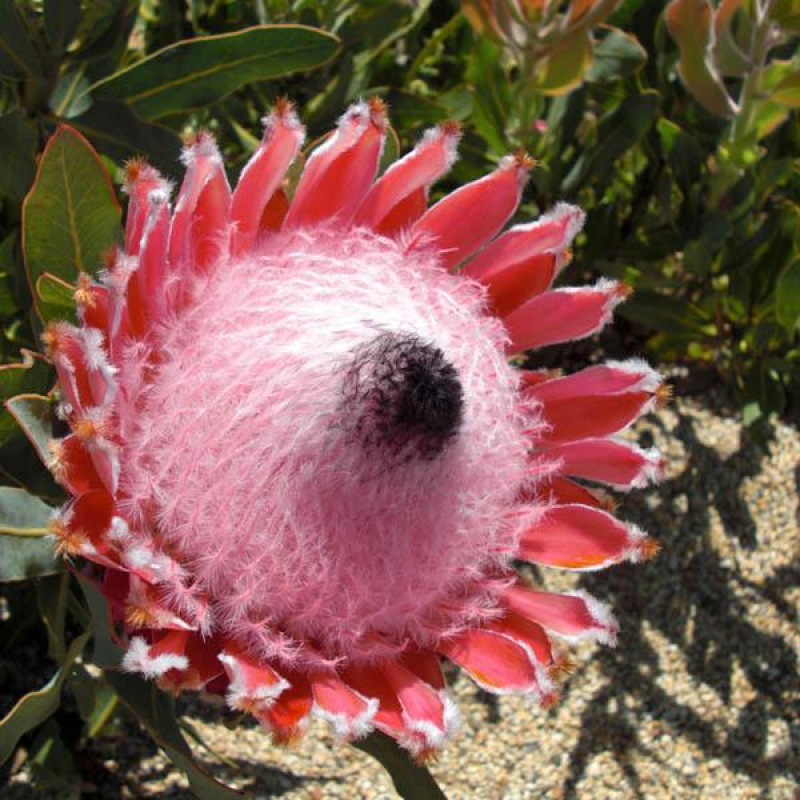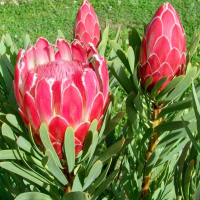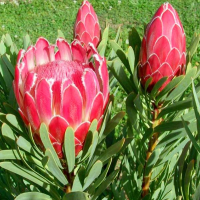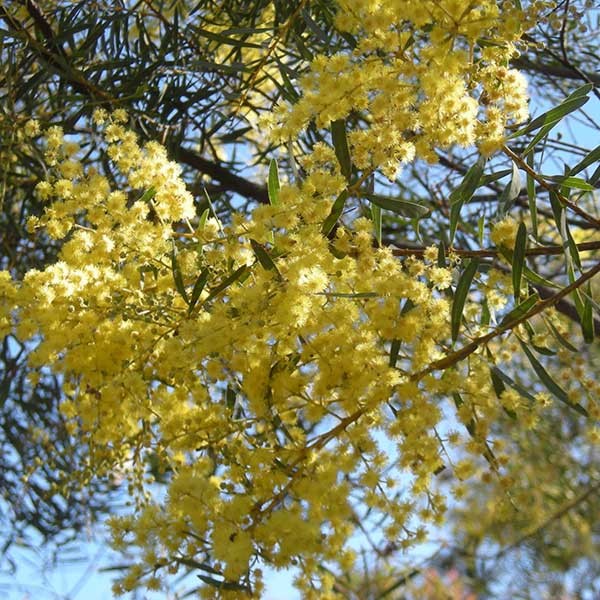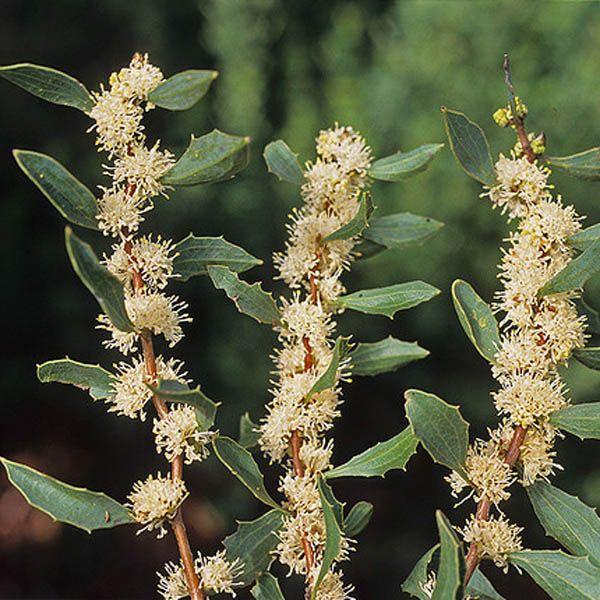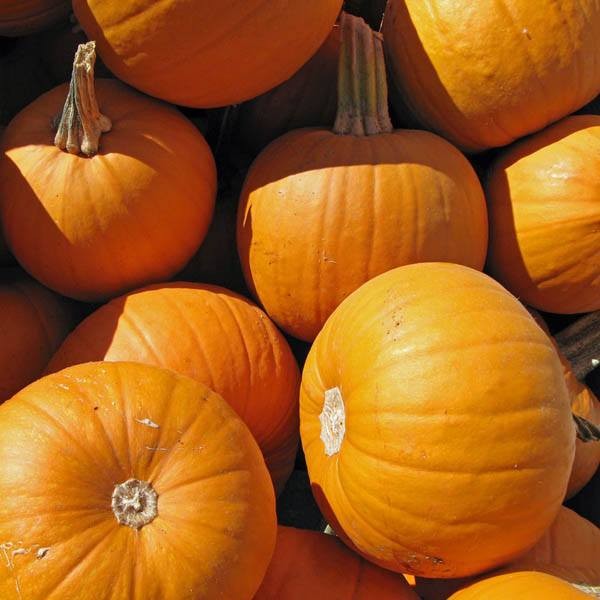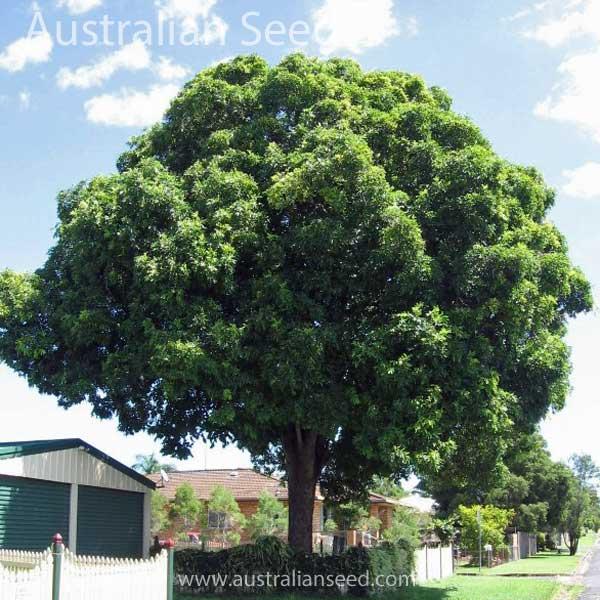We ship Internationally and Australia wide | Phytosanitary Certificates available for international orders.
One of the best flowering Protea, hence the name "magnifica" or "Queen Protea", they make excellent cut flowers.
Magnificent flower heads 15 cm long are downy in shades of soft pink and cream with a blacktopped central flower mass.
A variable shrub from South Africa is usually around two and a half metres and about the same width.
Prefers a light well-drained rich soil in an open sunny position, drought-resistant but frost tender.
The best time to sow is usually autumn or spring when the temperature range is between 16-22°C, and there is a difference of day and night temperatures of around 12°C.
If your summers are hot and dry and winter is moderate and wet, autumn is the best time to sow.
In colder climates with less harsh summers, it is usually better to sow in spring.
- The growing medium should be well draining but should remain damp between watering.
- Sow the seed equal to its side deep. Vermiculite is an excellent medium to cover the surface as it helps retain moisture and controls the temperature.
- Keep moist but not too wet, as the seed may rot. Do not let the growing mix completely dry out.
- Germination should occur in 30-60 days, depending on the temperature and conditions.
Pre-treatment of smoke is recommended:
Members of the Proteaceae are responsive to pre-treatment of smoke. Although germination will often occur without smoke treatment, it has proved to be beneficial in reducing the number of days to germination and increasing germination rates in many species of the Proteaceae family.
Smoke treatments are simple and can be undertaken by soaking the seed overnight or applying it to the surface after sowing; both provide good results. Smoke treatments are available by clicking here.
*Please note:
- Please do not be too hasty to discard seeds that do not germinate; seeds will often lay dormant until the conditions are similar to their natural germination requirements.
- As with all seeds, they must have adequate water to keep them moist but not too wet.
- These growth notes are provided as guidance only and do not guarantee successful germination.
If you are uncertain about the requirements for importing seeds into your country, do not hesitate to contact our Export Manager at Australian Seed.
Being a registered Export Establishment, we can provide a full export service from obtaining a Phytosanitary certificate (if required) to delivering your parcel to the transport company of your choice.
It is important to note that the buyer is responsible for clearing the goods through customs and paying all associated charges, including import fees and taxes. Please note that we cannot accept returns due to Australian quarantine restrictions.
You can find the complete International terms and conditions by clicking on this link
At Australian Seed, we take pride in our extensive network of trusted suppliers and collectors who work with us to provide you with an unmatched selection of top-quality products.
Whether you are searching for a specific item or need to make a bulk purchase, our team is here to help. Our dedicated customer service representatives can guide you through our vast inventory and assist you in finding exactly what you need.
We are committed to providing our customers with the highest level of service and support.
Please do not hesitate to contact us if you require any assistance.

